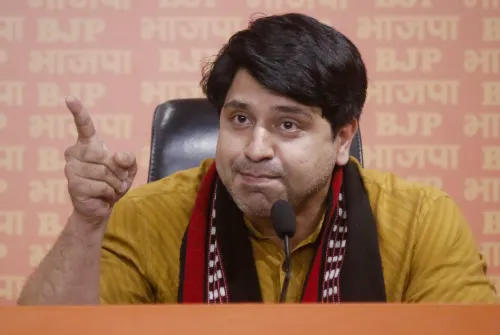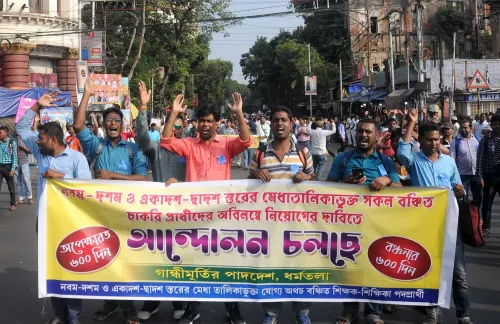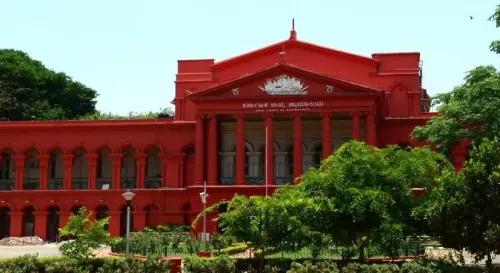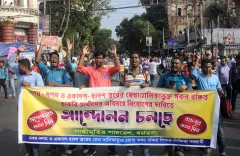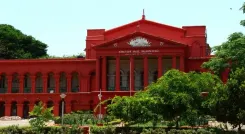Could the 'National BioBank' Revolutionise Personalised Healthcare for Every Indian?
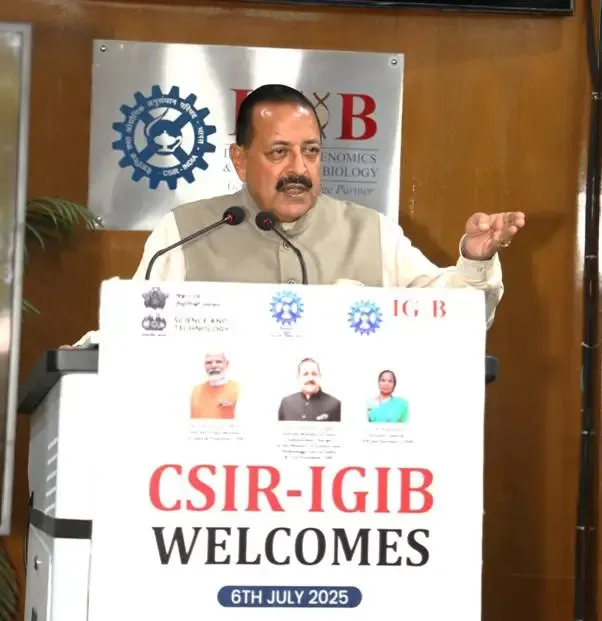
Synopsis
Key Takeaways
- Personalised healthcare is becoming a reality in India through the National Biobank.
- The Biobank will collect data from 10,000 individuals to enhance treatment strategies.
- This initiative aims to tackle complex diseases like diabetes and cancer.
- Collaboration among institutions and industries is essential for success.
- Data-driven approaches will empower AI diagnostics and gene therapies.
New Delhi, July 6 (NationPress) The nation is on the brink of a future where each Indian could receive personalised medical care tailored to their unique genetic profile, lifestyle choices, and environmental factors, stated Union Minister of State (Independent Charge) for Science and Technology, Dr. Jitendra Singh, on Sunday.
He officially launched the cutting-edge Phenome India "National Biobank" at the CSIR-Institute of Genomics and Integrative Biology (IGIB) in New Delhi. This state-of-the-art facility represents a major advancement in establishing India’s own longitudinal health database, paving the way for tailored treatment plans in the future.
The Biobank aims to form the foundation of a nationwide cohort study, amassing extensive genomic, lifestyle, and clinical information from 10,000 participants throughout India.
Inspired by the UK Biobank, this Indian iteration is specifically designed to reflect the country’s rich diversity—spanning geography, ethnicity, and socio-economic strata.
Experts anticipate that this initiative will facilitate early detection, enhance treatment precision, and strengthen the battle against intricate health issues such as diabetes, cancer, cardiovascular diseases, and rare genetic conditions.
Speaking to the scientists and researchers at IGIB, Dr. Singh remarked, "The shift towards personalised healthcare is not just a concept anymore—it’s becoming a tangible reality, fueled by homegrown innovations."
He highlighted the distinct health issues faced by Indians, particularly the high rate of central obesity, which is often overlooked as a risk factor.
The minister pointed out prior studies indicating that seemingly lean Indians might have a significant amount of fat concentrated around their waists, stressing the necessity for health strategies tailored to the population. "Our health conditions are complex and highly varied. This is where the Biobank becomes crucial—it enables us to unravel that complexity," he stated.
He underscored the rapid progress of India’s scientific community, referencing recent breakthroughs in quantum technology, CRISPR genome editing, and the fight against antimicrobial resistance (AMR).
"India is no longer trailing behind—we are among the early adopters, sometimes even leading the way," he declared. The Biobank, he added, will support these initiatives by producing high-resolution data that can fuel AI-driven diagnostics and gene-oriented therapies.
Dr. Singh also advocated for increased collaboration among research institutions, government bodies like the Department of Biotechnology, and industry stakeholders, especially in fields like AMR and pharmaceuticals. "Research must go beyond the lab—it needs to reach the market and serve the community," he emphasized.
Dr. N. Kalaiselvi, Director General of CSIR and Secretary of DSIR, praised the Biobank’s launch as a courageous step toward India’s self-sufficiency in healthcare data.

